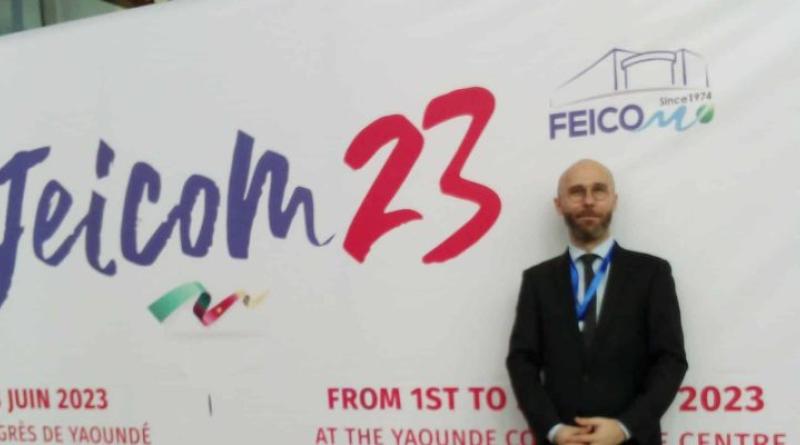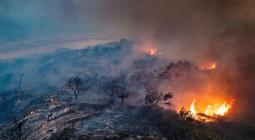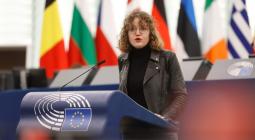Albin Lazare: “The environment and the SDGs are at the heart of city diplomacy”

Invited to the second International Economic day of Municipalities in Cameroon (JEICOM23), which closed on 3 June 2023 in Cameroon, the International Association of Francophone Mayors (AIMF) gave an interview to AFRIK21. In this interview, AIMF representative Albin Lazare highlights the role of decentralised cooperation in access to climate financing and the achievement of sustainable development goals for African cities.
AFRIK21: The International Economic day of Municipalities in Cameroon (JEICOM23) mobilised civil society and local authorities from Cameroon and elsewhere. What was the purpose of the presence of the International Association of Francophone Mayors (AIMF) in Yaoundé?
Albin Lazare: After the 2021 edition, this is our second participation in the International Economic day of Municipalities in Cameroon (JEICOM) in Yaoundé, Cameroon. It was an excellent event that enabled us to meet people who are very important for the sustainable economic development of towns and cities. The International Association of Francophone Mayors (AIMF) is the global network of local elected representatives in the French-speaking world. And we have very strong links with Cameroonian cities, particularly in the areas of the environment and climate. So it was only natural that we should talk to your media, which has made this its speciality. We also have a number of projects underway in this country, so our presence here enables us to monitor these projects and then start up new ones.
What form does your decentralised cooperation policy take, particularly with regard to African local authorities?
Our approach is to provide solutions to the problems expressed by mayors. Obviously, Africa is an important part of the French-speaking world. So we provide support in terms of expertise, links between peers and mobilising funding for local authorities. It’s our trademark to link high-level thinking on sustainable cities with official development assistance and the mobilisation of funds from partners for cities. To be more specific, we have two programmes underway, including one focusing on the development of solar energy with the community of locally elected women in Cameroon. Since 2015, we have already raised a total of €4 million for fourteen municipalities to electrify essential services and communities. This is with the support of the French Environment and Energy Management Agency (ADEME), the French Global Environment Facility (FGEF), the Foundation and the State of Cameroon. In addition to this, in June 2023 we will be starting to implement an urban agroforestry project, as many of Cameroon’s forests are communal. So we’ve carried out a number of studies and we’ve launched an ecotourism activity that will enable both the sustainable management of ecosystems and leisure activities for local people. Basically, the aim is to protect biodiversity.
What kind of support can this cooperation provide for the development of sustainable cities, particularly in municipalities south of the Sahara that are lagging far behind in implementing the United Nations’ Sustainable Development Goals (SDGs)?
This is a crucial question, because it touches on the United Nations’ Agenda 2030, and it remains a complex challenge. We are convinced that it cannot be achieved without the support of local authorities, since they are directly aware of the issues and have links with local residents. In this context, we support “city-to-city” cooperation, because it enables mayors to share their best experiences and skills. It also facilitates access to funding at both national and international level. With this approach, we can help cities to test, innovate and experiment with different policies to be more effective in achieving the Sustainable Development Goals (SDGs). I can illustrate this creativity with local public energy services, given that this is a local authority responsibility. In this area, we have opted for the social and solidarity economy (SSE) insofar as local authorities invest in solar solutions, offer services to the population and then provide maintenance. The day-to-day management of the service can be entrusted to partners, particularly in the private sector. We are more interested in working with cooperatives, particularly young women, so that they can be trained to operate these installations and make a living from them.
As the main technical ally of your 300 member cities spread across all continents, are you in favour of creating a special climate resilience fund for African capitals that are beset by climatic hazards? I’m thinking here of Kigali and Kinshasa for the most recent cases of flooding. If not, what support alternatives are you recommending?
We know that in the next twenty years or so, nearly three quarters of the world’s population will be urban, with most of the growth taking place in Africa and Asia. So this is a major development in a world that is already coping with the effects of climate change. And of course this requires major financial efforts, new financing mechanisms such as the one you are proposing for a special climate resilience fund. Indeed, the 27th United Nations Conference of the Parties on Climate Change (COP27), held in Egypt in November 2022, gave renewed consideration to a funding mechanism to compensate vulnerable countries for the loss and damage caused by natural disasters. That’s an essential political signal! Secondly, with our partners, we are keen to ensure that this funding is made available to local authorities. This is a major concern, including in Cameroon, where a World Bank report shows that towns are on the front line when it comes to flooding. In Africa, many towns are located on the coast, or are exposed to droughts. So one of our missions is to help them develop strategies to adapt to climate change. In fact, my presence in Yaoundé is an opportunity to launch a new partnership for “municipal emergency preparedness”, particularly against flooding. We will be stepping up coordination to improve the quality of emergency services, working with the State’s civil protection department on emergency services, local authorities on town planning issues and even with civil society on essential behaviour. We have already conducted a first phase between 2017 and 2021 with three pilot cities, namely Yaoundé in the Centre region, Douala in the Littoral and the Menoua areas in the West region.
There is also the issue of sanitation. On this front, AIMF is completing a major programme with the Yaoundé Urban Community to build the largest sewage sludge treatment plant in Cameroon. In addition to waste management, this project, co-financed by the French Development Agency (AFD) and the Bill & Melinda Gates Foundation, will reduce pollution in urban areas. Douala and other towns should soon follow.
How do you see the future of cooperation between cities in the North and cities in the South? Do you have any projects or events in the pipeline?
When it comes to decentralised cooperation, we give priority to long-term friendly relations between towns in the North and South. We are also seeing a very strong momentum in South-South cooperation, particularly at sub-regional level, as in the case of the Association of Central African Cities. Cities in the same country are also keen to work together. This is particularly true of the United Councils and Cities of Cameroon (UCCC). Examples include the municipalities of Nantes in France and Kindia in Guinea, which are cooperating on hygiene and waste recycling. So the environment and the SDGs are at the heart of city diplomacy. This concept is entirely complementary to the prerogatives of States, and is important because of the flexibility it offers, enabling mayors to voice their concerns about the ecological transition with a single voice.
On 2 June 2023, we celebrated the tenth anniversary of the Great Lakes Local Authorities Platform, which brings together local elected representatives from Burundi, Rwanda and the Democratic Republic of Congo (DRC). The platform is working together to improve management of this cross-border area, in particular Lake Kivu, between fishermen. The aim is to prevent the risk of conflict or even depletion of the resource.
As you know, Yaoundé and most other African cities are experiencing a demographic explosion that is far from over, if the World Bank’s figures are anything to go by. The urban population includes a fairly dynamic young population, despite the low level of financial or digital inclusion, depending on the context. What advice do you have to help them get involved in the challenges of sustainability?
Well, it’s a rich and complex question. Firstly, because it constantly challenges mayors to provide quality public services to an increasingly large and young population.We have a young generation of climate activists who are making a name for themselves by getting involved in the fight against climate change through voluntary work and by speaking out. It’s exemplary and admirable! So we’re going to have to help them in their commitment by promoting spaces for dialogue and opportunities, particularly in the circular economy in which Cameroon and other countries are already investing. Young people must have access to economic inclusion programmes to solve environmental problems, particularly through green cooperatives.




